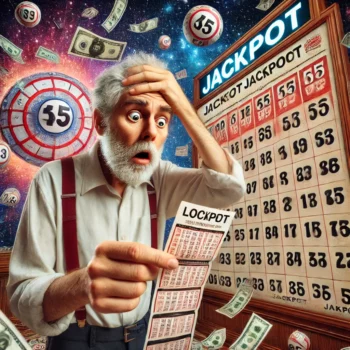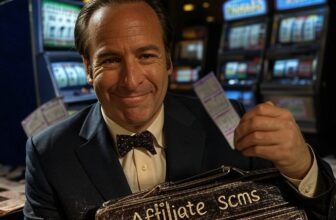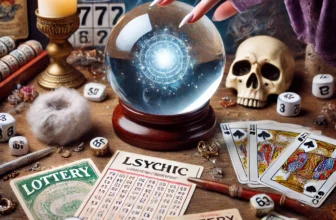Spoiler: It’s Not Because They Want You to Retire Early!
Lotteries. The ultimate “investment” strategy for anyone who believes that fate or destiny is personally watching over them. But let’s be honest for a second. We all know that the chances of winning a lottery are roughly the same as being hit by a meteor while getting struck by lightning on the exact day you finally find the TV remote. Yet, here we are, still dreaming about that elusive jackpot. Why? Because we’re optimists—or as some might say, we like playing “voluntary taxes” disguised as hope.

The Big Question: Why Is It So Hard to Win?
Here’s the thing: lotteries are designed to be nearly impossible to win because, well, they kind of have to be. If everyone won, who would fund the next jackpot? Spoiler: it wouldn’t be you because you’d have already blown your winnings on a yacht you can’t afford to fuel.
But beyond that, lotteries are a business—a brilliant business model where the odds are stacked against you so high that the pyramids look like molehills in comparison. Here’s a fun fact: the odds of winning the EuroMillions jackpot are 1 in 139,838,160. I mean, sure, those are better odds than some other lotteries, but only if you measure “better” as being slightly less impossible.
Wouldn’t It Be Fairer to Distribute the Prize Pool?
It would make sense, wouldn’t it? Instead of one guy walking away with an obscene pile of cash to do who-knows-what (spoiler: buying things they’ll regret in 6 months), why not spread the wealth? What if more people could win slightly less astronomical amounts—like say, paying off the mortgage instead of buying the moon?
But here’s the plot twist: people don’t want smaller prizes. Why? Because, despite all logic and statistics, we’re suckers for the BIG payday. A jackpot that could launch your very own space program or make you the king of your own island (population: you and your poor decision-making skills). No one brags at dinner parties about winning the $50 second-tier prize, even though that’s a lot more likely. No, people want to be able to say, “I won the lottery,” and have everyone’s jaws hit the floor.
Take the UK National Lottery, for instance. Sure, it’s nice to win a few grand, but what really grabs headlines? That one person who walks away with a jackpot so massive they need financial advisers to explain why buying 47 cars isn’t a sound plan.
What If We Lowered the Jackpot?
Would people still play if jackpots were a bit more, let’s say, realistic? Let’s put that to the test. Imagine if tomorrow the lottery board announced, “Hey folks, instead of £100 million, the jackpot will now be £1 million, but we’re giving out more second and third prizes!” You’d think people would be all over that. Finally, a chance to win a prize that doesn’t make you instantly paranoid about friends and relatives suddenly liking you a lot more than before.
But nope. That’s not how the lottery brain works. The lottery is about dreams, not practicality. A £1 million jackpot just doesn’t have the same appeal as those ridiculous nine-figure jackpots that have people saying things like, “Well, after taxes and converting it into gold bars, it’s only, like, $300 million.”
Case in point: in 2013, the Massachusetts State Lottery tried an experiment where they reduced the jackpot prize to give out more mid-level prizes. And guess what happened? People started complaining! Fewer tickets were sold, because what’s the point of playing if you’re not going to win enough money to buy a small European country?
Why Do People Get Hooked by Sky-High Jackpots?
So why do people get all googly-eyed at these huge jackpots? Is it the thrill of imagining a new life filled with private jets, mansions, and being able to tell your boss exactly where to shove that “urgent” email? Absolutely. But it’s also about that intoxicating what if factor.
The lottery preys on the same part of your brain that makes you think you’re one weird trick away from a six-pack or one “can’t miss” stock pick away from early retirement. It’s the dream, the fantasy, the possibility that you, out of millions, will be the chosen one. (Move over, Harry Potter.)
And don’t underestimate the marketing of these lotteries. They know exactly what they’re doing. With each ticket you buy, they’re selling you a microdose of hope, a brief moment where you can think, “This could be my ticket out of this soul-sucking 9-to-5 job.” Then reality hits, and you realize your best shot at that is still through, you know, hard work and saving. Bummer, right?
A Funny Story (That Isn’t Funny If You’re the Guy Involved)
Remember Stefan Mandel? The guy who cracked the lottery code and won 14 times? He didn’t do it by luck but by gaming the system – literally. He bought thousands of tickets, covering all possible combinations to guarantee a win. In one instance, he and his investors scooped up $27 million. Of course, this loophole got closed pretty fast because when one person cracks the system, the system changes. Lottery operators are clever like that.
So yeah, even when you try to outsmart the lottery, it’s still rigged against you.
Conclusion: It’s Unfair, But That’s the Point
Lotteries are designed to be next to impossible to win because that’s how they keep the lights on. Sure, the odds are laughably bad, but the allure of becoming an overnight millionaire is just too strong. People don’t want a fairer system with more low-level prizes. They want to daydream about quitting their jobs and living in luxury.
In the end, the lottery isn’t about fairness or even about winning—it’s about hope. And as long as that hope comes with a shiny, unattainable, sky-high jackpot, people will keep buying those tickets. Because, hey, you never know… right?
But even though lotteries are almost impossible to win, there are some strategies people swear by to help them pick the next winning numbers. Want to know more? Check out our page on How to Win the Lottery.







